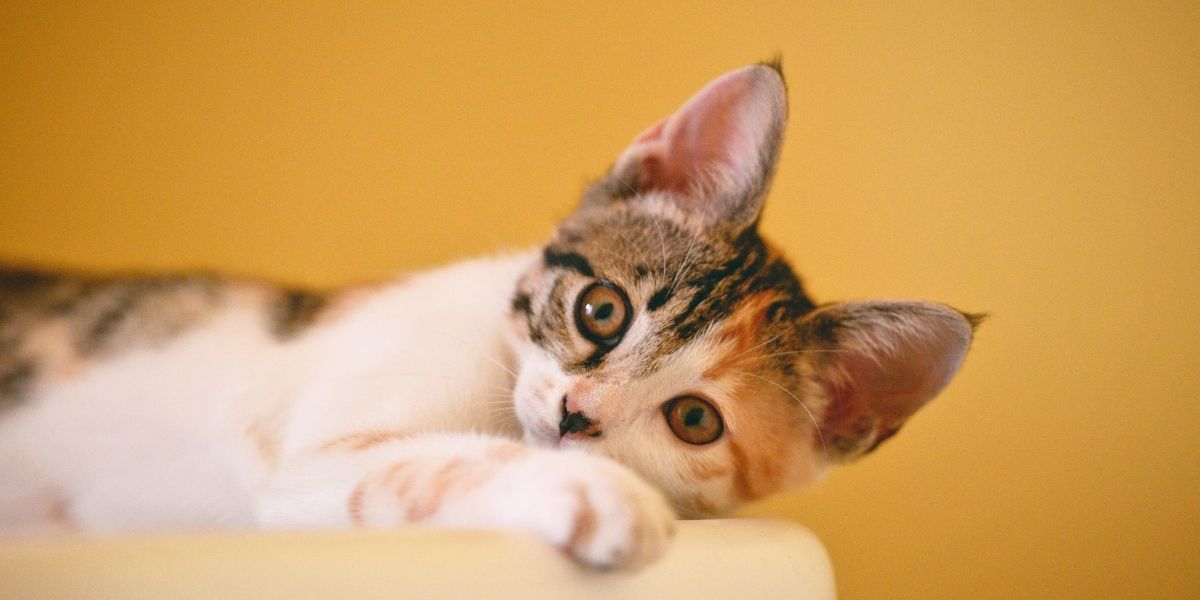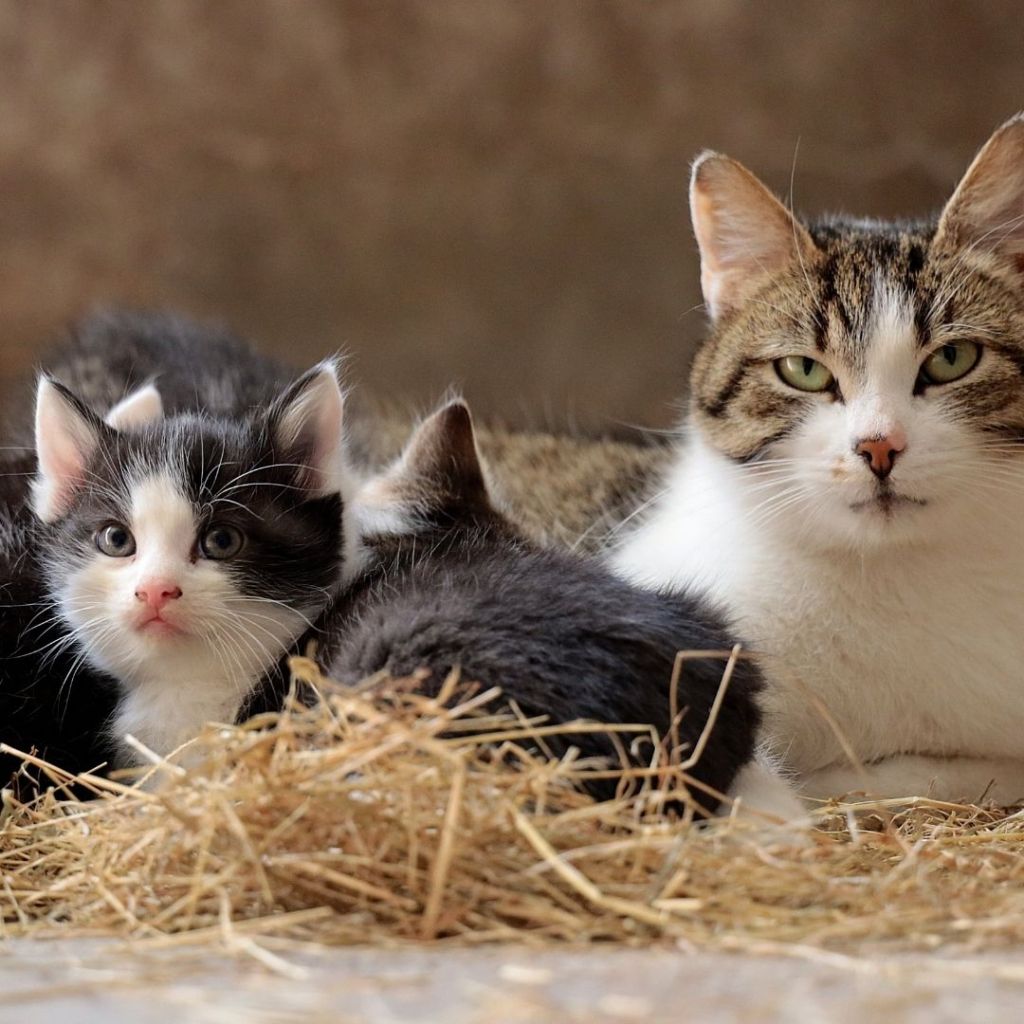
Should I Spay My Kitten? The Pros and Cons of Neutering Your Cat
22 Mar 2022.
Whether you’ve just gotten your first feline or are adopting a kitten to be friends with your cat, you may be wondering if it’s necessary to neuter your new kitty. Do you need to neuter your cat? Or is it better to just let nature take its course? Below, Cat in a Flat answers all your questions about spaying or neutering your cat.
Table of contents
What does it mean to neuter a cat?
Neutering is a surgical procedure which will prevent your cat from reproducing. In female felines this is called spaying. This is when a vet will remove the kitty’s ovaries and uterus. In males it’s referred to as neutering or castration and means your male fur friend’s testes will be removed.
When you take your kitten to be neutered, the vet will place them under a general anaesthetic for the operation. Although your kitty will experience some discomfort (and may need to wear a cone afterwards to prevent grooming the operated area), most cats are up and active just a few hours after the surgery.
When is the best time to get a cat fixed?
Felines reach sexual maturity at around 4-5 months, from which point female cats will be able to birth up to five litters every year. To prevent unwanted pregnancies, veterinarians recommend you spay your fur friend at around four months old.
Do you have an older cat and are wondering if their age is too advanced for them to be neutered? Not to worry. Neutering your older cat can be completely safe too. As long as your furry friend is healthy, there is no age limit to when you can get your cat spayed or neutered.
Are there pros to spaying female cats?

- Population control. Pet overpopulation is a serious problem, especially with cats. Felines tend to wander more easily than dogs, hence it’s also easier for them to get pregnant. With a huge surplus of felines in shelters, it can be difficult to find homes for new kittens. And if you do decide to keep a new litter of kittens, you will have the additional expenses of food, veterinary care, and toys for multiple pets.
- Healthier for your cat. As you can imagine, carrying and birthing a kitten litter can put a lot of stress on your female kitty’s body. Un-neutered female cats are also at higher risk for pyometra (infection of the womb) as well as breast cancer.
- Less stress. An unneutered female cat will go into heat several times a year. During this period, she will experience the need to seek out a mate. Your female kitty will attract males to the area with her scent. This will result in fights, cat calling and other nuisances. A spayed kitty won’t have the need to attract or seek out a mate. As a result, both your fur friend and your surroundings will be calmer and quieter with a neutered female cat.
- Protects the environment. It’s in your furry friend’s nature to love to hunt, but cats hunting wildlife can cause serious damage to your local ecosystem. When a female kitty births a litter, she is more naturally driven to hunt to provide for herself and her babies. One way to help prevent this is by spaying your cat.
What are the pros of neutering a male cat?

- Safer for your cat. An un-neutered male cat will roam over a large area, marking his territory with a pungent spray. If your fur friend does roam widely, this puts him at higher risk of encounters with cars and other animals.
- Healthier for your cat. Another hazard of an un-neutered cat is that they will be much more territorial. This will result in fights with other kitties. When cats fight, they can suffer serious injuries or spread diseases such as FIV (feline immunodeficiency virus). FIV can be passed on through scratches and abscesses. This virus will attack your fur friend’s immune system, leaving them vulnerable to illness and infections. You are less likely to have to deal with a sick or injured kitty if you neuter your male cat.
- Calmer cat. You might consider keeping your unneutered male cat indoors to prevent him from wandering and getting into fights. However, Mr Whiskers will react by spraying in the house, scratching the furniture, or behaving aggressively towards you. As you can imagine, this will also create problems for your cat sitter whenever you’re away. Avoid these issues in the home by asking the vet to neuter your male cat early on.
- Population control. Obviously male kitties can’t have kittens, but a single male feline can impregnate multiple females in the area. While spaying a female cat can make a big difference in population control, neutering your male kitty is helpful too.
What are the cons of neutering cats?

- Permanent sterilization. Neutering your cat means that they will no longer be able to reproduce. If you are thinking of breeding your fur friend, you may want to consider waiting to spay or neuter them.
- Weight gain. An unneutered cat will use up a lot of energy seeking out a mate, marking their territory, and, in the case of female cats, carrying and birthing kittens. A neutered cat will no longer expend the same energy and will be more sedentary and prone to weight gain. This is why a feeding schedule and daily playtime are so important to keep your neutered cat active and healthy.
Now that you’ve considered the pros and cons of neutering your cat, why not check out our blog posts on the essentials of daily cat care and tips on how to be a pawsome fur parent to your furry friend!
- #catinaflat
- #pet care
- cat behaviour
- Cat Care


